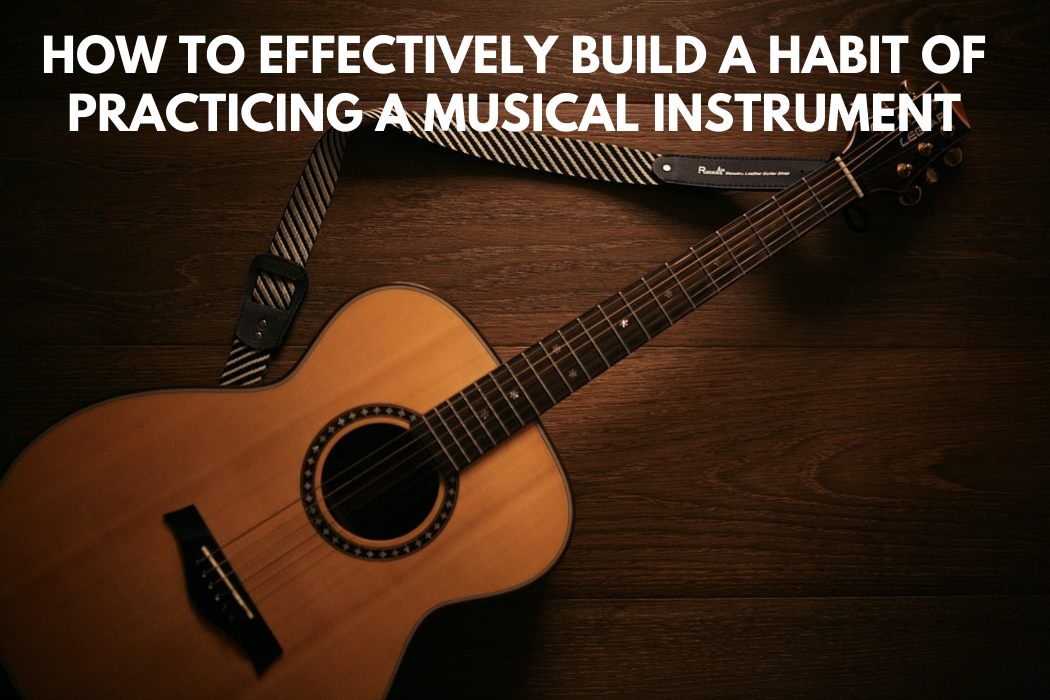When you’re learning to practice a new musical instrument, the first question that comes to anyone’s head is how long do they need to practice each day? 2 hours? 4 hours? 8 hours? 12 hours?
Different experts have different takes on this question. Psychologists say that the number of hours hardly matters when you don’t mindless practice an instrument. You need to learn to be in the moment and develop a habit of deliberate practice to get the most out of building a new habit of learning to play an instrument.
You’ll find that deliberate practice is very draining because it requires a lot of energy to keep all your mental forces focused in one direction for a considerable period of time. Even the most dedicated musicians will find it hard to practice for more than four hours a day.
5 tools for effective deliberate practice
Deliberate practice is when you’re fully immersed in your music. When you repeat small parts of the whole piece and meticulously practice them until you’re perfect at playing them. It also involves slow self-monitoring where you keep tabs on how far you’ve come and analyze how far you need to go to be where you want to be.
Here are the keys to be more deliberate in your practice, and hence more consistent in sticking to your new habit of learning to play a musical instrument:
- Duration: Keep the sessions long enough so you can practice them effectively, but not long enough that you feel too exhausted to do anything else for the rest of the day.
- Timing: Do some journaling to understand which parts of the day you are most energetic. Based on the self-reflection exercise, choose those hours of the day to practice your musical instrument so you can have ap productive session.
- Goals: Keep track of your goals and know what you want to achieve. Having an end goal in sight will also help you be more mindful in your deliberate practice sessions.
- If you’re unable to get past a hindrance, seek professional help from an experienced trainer. Spending time with someone who has got their stuff together will help you achieve new heights.
Turning this into a habit
Playing a musical instrument and turning the deliberate practice into a habit are two different ball games. Based on what psychologists from all over the world have concurred, here are some ways you can apply in your life right away to start practicing a musical instrument consistently:
- Be prepared that you won’t see immediate improvement. It takes time and conscious effort to rise up the ladder. So be patient with yourself and celebrate the smallest of wins to keep your spirits high.
- Create practice triggers. These can be other activities that trigger the cue in your brain that you need to practice your musical instrument. When you start one, your brain will compel you to start practicing the musical instrument.
- Hold yourself accountable. If you can’t find a friend who is working on the same goals as you, hire an accountability coach. These are trained individuals committed to seeing you grow and evolve, so make the most of your association with them.
- Download a habit tracker. Keeping track of your unbroken streaks of playing the musical instrument will motivate you to keep the streak up and get even more committed to this new habit you’re building.
- Challenge yourself. Every time you find yourself slipping into complacency that you’ve learned enough, pick up a more challenging chord and try to play that.
- Learn from the experts. The experts at Better Humans write the most detailed articles on self-improvement and personal growth. Here are some of the articles you can refer on learning to play a new musical instrument.’
How To Make Music A Useful Part Of Your Life Again
Listening right now? Please, press pause.
